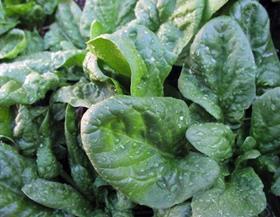
Toshiba is to enter the commercial vegetable growing market.
The electronics giant is aiming to produce long-life vegetables with the aim of earning around 300 million yen (£1.8 million) in sales annually.
A former electronics and lighting factory in Yokosuka, Kanagawa prefecture, Japan, is being converted into the 'plant factory', which is due to open later this year. It will produce lettuce, greens, spinach, mizuna and other vegetables in a 'clean room' environment.
According to the Institute of Mechanical Engineers, the site will use systems similar to those the company uses to produce semi-conductors to grow plants in a “close to sterile” and “almost germ-free” environment.
It will feature closed growing systems that use fluorescent lighting optimised to promote vegetable growth. An air-conditioning system will maintain consistent temperature and humidity inside the factory, remote monitoring systems will track plant growth, while all packaging materials and systems will also be sterilised.
A spokesperson for Toshiba, said: “Minimising the entry of germs and the damage that they can do considerably extends the freshness and shelf-life of vegetables - a major concern for retailers of cut vegetables and salads. We plan to meet market needs by offering functional vegetables rich in polyphenols and vitamin C, achieved by careful control of the growth environment.”
The company is also considering building a large-scale plant factory outside of Japan.



